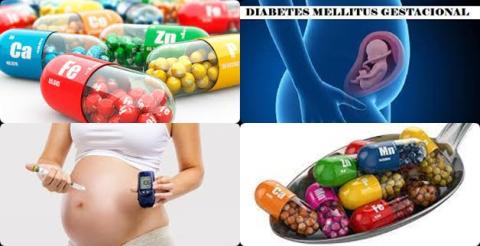
Objectives:
The effects of vitamin and mineral supplementation on women with gestational diabetes mellitus (GDM) have not been well established. Therefore, this review article has been conducted.
Does vitamin and mineral supplementation improve glycemic control (like, fasting plasma glucose, serum insulin, homeostasis model assessment-insulin resistance and homeostasis model of assessment for β cell function) and decrease risk of inflammation and oxidative stress in women with gestational diabetes mellitus?
Study design:
This review article included 12 RCTs with 698 patients.
Patients included were in the age range of 18-40 years and all reported gestational diabetes mellitus screening was conducted between 24 weeks and 28 weeks gestation.
All trials gave vitamin and mineral supplementation orally.
Types, doses, dose regimens and duration of vitamin and mineral supplementation were as follows: magnesium (100-250 mg), zinc (4-233 mg), selenium (200 μg), calcium (400-1000 mg) and vitamin E (400 IU) every day for 6 weeks, vitamin D (200-50000 IU) every day or every 2 or 3 weeks for 6 weeks. Magnesium, zinc, selenium, calcium, vitamin D or E was given separately or in different combinations: magnesium and vitamin E; zinc and vitamin E; calcium and vitamin D; magnesium, zinc, calcium and vitamin D.
All trials used placebo as control intervention.
Among the 12 trials, 8 were judged to be at low risk of bias and 4 as being at unclear risk of bias. Unclear risks were related to attrition bias and other bias.
No significant publication bias was found for the effect of vitamin and mineral supplementation on all 8 outcomes.
Results and conclusions:
The investigators found magnesium, zinc, selenium, calcium, vitamin D and E (alone or in combination) supplementation significantly improved glycemic control in women with gestational diabetes mellitus compared to those receiving placebos:
-fasting plasma glucose (FPG) [MD = - 9.02, 95% CI = -12.09 to -5.96, p 0.00001];
-serum insulin [MD = -4.33, 95% CI = -5.35 to -3.32, p 0.00001];
-homeostasis model assessment-insulin resistance (HOMA-IR) [MD = -1.34, 95% CI = -1.60 to -1.07, p 0.00001] and;
-homeostasis model of assessment for β cell function (HOMA-B) [MD = - 15.58, 95% CI = -23.70 to -7.46, p = 0.0002].
Significantly because the calculated p-value of 0.0002 was less than the p-value of 0.05.
The investigators found vitamin and mineral supplementation (magnesium, zinc, selenium, calcium, vitamin D and E (alone or in combination)) significantly decreased risk of inflammation and oxidative stress through decreasing high-sensitivity C-reactive protein (hs-CRP) [MD = -1.29, 95% CI = -1.82 to -0.76, p 0.00001], malondialdehyde (MDA) [MD = -0.71, 95% CI = -0.97 to -0.45, p 0.00001] and increasing total antioxidant capacity (TAC) [MD = 45.55, 95% CI = 22.02 to 69.08, p = 0.0001].
The investigators concluded that vitamin and mineral supplementation improves glycemic control and decreases risk of inflammation and oxidative stress in women with gestational diabetes mellitus.
Original title:
The effects of vitamin and mineral supplementation on women with gestational diabetes mellitus by Li D, Cai Z, [...], Zhang J.
Link:
https://www.ncbi.nlm.nih.gov/pmc/articles/PMC8145819/
Additional information of El Mondo:
Find more information/studies on review article/meta-analysis/significantly, vitamins, minerals and pregnancy right here.